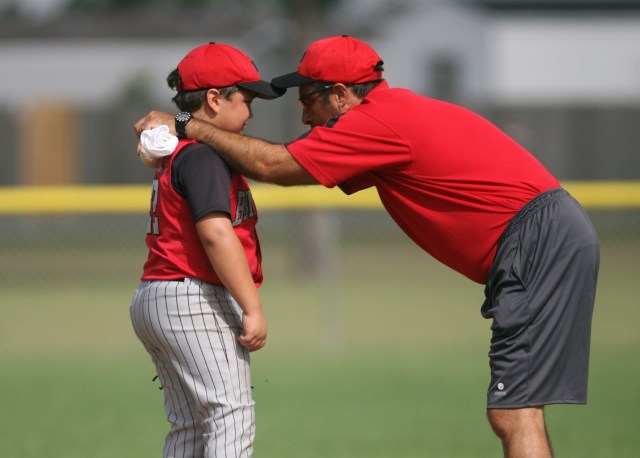The first time I volunteered to be a head coach for my kids’ soccer team, I did so confident of my bonafides as a rookie coach. I boasted a closet full of soccer scarves, I watched at least two soccer matches on television most weekends and my four kids helped me hone the skill of wrangling multiple children at once.
Confidence began to wane in the days leading up to the first practice as two worrying realizations began to dawn on me. First, I didn’t own a whistle. Also, I hadn’t figured out a great game plan for introducing second graders to the beautiful game. While videos of kids doing soccer drills were plentiful on the internet, all of those kids belonged to academies and had clearly seen actual soccer matches before.
My Google search for “how to turn a group of kids who have never played soccer into mini-Neymars” was coming up dry and I was suddenly uncertain that I would be up to the task of effectively coaching this team.
Feelings of inadequacy typically keep people less impulsive than myself from signing up as a coach to begin with. The rest of us dive in headlong and figure it out as we go, but not without a good bit of consternation and self-doubt. With participation in sports falling and child obesity on the rise, a shortage of confident coaches is not going to help curb current trends.
After taking a deep look at how the needs of kids were not being met in regard to physical activity, Aspen Institute Project Play identified the importance of coaching as a key component of their task to “embrace a sport model that welcomes all children” with the goal of developing the ability, confidence and desire to be physically active for life by the time kids reach age 12.
To help address the need for coaches at the community level, Nike and the United States Olympic Committee worked together to develop the newly released How To Coach Kids resource. “We believe coaches are game changers when it comes to giving kids a positive experience in sports that will inspire them to be active for life,” said Caitlin Morris, General Manager of Global Community Impact at Nike.
“With How to Coach Kids we’re working to grow the ranks of coaches who make a difference in kids’ lives and communities every day.”
What has resulted is an incredibly slick and helpful website, with an accompanying app that is free for anyone to use. A 30-minute introductory course on coaching basics does a great job casting a vision for why coaching is important and how coaches can create a positive experience for all kids.
Even as a parent with multiple seasons of different sports under my coaching belt, there were a lot of points throughout the class where I was making mental notes so that I can implement new ideas the next time I coach.
One of my big coaching hang-ups has been my desire for kids to play the sport the way it’s played at the highest levels as opposed to thinking outside of the box and considering how it can be practiced with consideration given to the kids’ developmental stage so that they have more fun. The course helped me see how my underlying competitiveness has subtly informed my coaching in the past and kept me from simplifying sports into concepts that young kids can understand and enjoy more fully.
In addition to the introductory course, the site has sections that include resources on inclusion, resources sorted by various topics and sport specific resources. The array of sports included is deep and while I don’t ever see myself coaching handball, I now know where to find the coaching education and certification process should I ever change my mind.
This week I begin my fourth season coaching this group of kids. With some experience and confidence, I feel good about how the season will play out. And as I did my pre-season research to put together some practice plans, I was grateful to have additional resources to rely on this year.
Even with a better equipped coach my team is unlikely to inspire a movie about a group of kids able to win a prominent tournament as a collective of underdogs. But I am better situated to help them have fun doing something active, which will hopefully encourage them to keep on playing.











